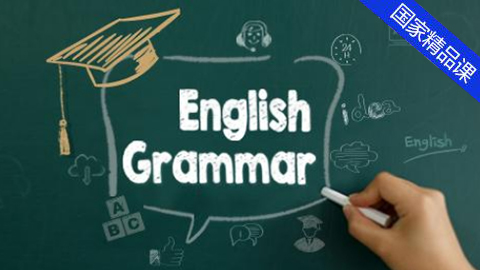嗯嗯
问 1.汉语中的某些标点符号为英语所没有.顿号(、)书名号(《》)间隔号(?)着重号 2.英语中的某些标点符号为汉语所没有.撇号--Apostrophe('连字号--Hyphen(-)斜线号—Virgule or Slash(/):该符号主要起分割作用,也常用于标音. 3.某些符号在汉英两种语言中的形式不同. 中文的句号是空心圈(.);英文的句号是实心点(.). 英文的省略号是三个点(...),位置在行底;中文的为六个点(.),居于行中.英文的破折号是(-);中文的是(--)
1.汉语中的某些标点符号为英语所没有.顿号(、)书名号(《》)间隔号(?)着重号
2.英语中的某些标点符号为汉语所没有.撇号--Apostrophe('连字号--Hyphen(-)斜线号—Virgule or Slash(/):该符号主要起分割作用,也常用于标音.
3.某些符号在汉英两种语言中的形式不同.
中文的句号是空心圈(.);英文的句号是实心点(.).
英文的省略号是三个点(...),位置在行底;中文的为六个点(.),居于行中.英文的破折号是(-);中文的是(--)
6 所有答案
-

-

-

-

-

-

⒈ 汉语中的某些标点符号为英语所没有⑴ 顿号(、):顿号在汉语中起分割句子中的并列成分的作用;英语中没有顿号,分割句中的并列成分多用逗号。如:She slowly, carefully, deliberately moved the box. 注意:类似的情况下,最后一个逗号后可加and,这个逗号也可省略,如She slowly, carefully(,) and deliberately moved the box. ⑵ 书名号(《》):英文没有书名号,书名、报刊名用斜体或者下划线表示。如:Hamlet / Hamlet 《哈姆雷特》Winter‘s Tale / Winter‘s Tale 《冬天的童话》The New York Times / The New York Times 《纽约时报》。另外,英语中文章、诗歌、乐曲、电影、绘画等的名称和交通工具、航天器等的专有名词也常用斜体来表示。 ⑶ 间隔号(•):汉语有间隔号,用在月份和日期、音译的名和姓等需要隔开的词语的正中间,如"一二•九"、"奥黛丽•赫本(人名)"等。英语中没有汉语的间隔号,需要间隔时多用逗点。 ⑷ 着重号:有时汉语用在文字下点实心圆点表示需要强调的词语,这些实心点就是着重号。英语中没有这一符号,需强调某些成分时可借助文字斜体、某些强调性词汇、特殊句型、标点停顿等多种方法。 ⒉ 英语中的某些标点符号为汉语所没有⑴ 撇号--Apostrophe(‘) ⑵ 连字号--Hyphen(-) ⑶ 斜线号—Virgule or Slash(/):该符号主要起分割作用,如It could be for staff and / or students. 也常用于标音,如bed /bed/。⒊ 某些符号在汉英两种语言中的形式不同⑴ 中文的句号是空心圈(。) ;英文的句号是实心点(.)。 ⑵ 英文的省略号是三个点(...),位置在行底; 中文的为六个点(......),居于行中。 ⑶ 英文的破折号是(-);中文的是(--) 错误例析(1) 顿号、书名号、句号、省略号错误。比较中英文标点符号可见,英文标点中没有中文形式的顿号、书名号、句号和省略号。而这4种标点符号成了英语写作中“借鉴频率较高的符号。如: 〔错误〕1. While she is reading《Gone With the Wind》, I am cooking sister bought a lot of fruits for me, such as banana 、orange 、 apple and pear. 英文中的印刷体用斜体字表示书籍、报刊、戏剧、电影、绘画作品等的名称,在书写体或打字机打的文本中用字下线表示斜体字;英文常用逗号来代替冒号;而句号是用实心小黑点表示。故以上两句应改为: 1. While she is reading Gone With the Wind, I am cooking. (印刷体) 或While she is reading Gone With the Wind, I am cooking. (书写体) 2. My sister bought a lot of fruits for me, such as banana, orange, apple and pear. 还有,英文中的省略号其实是三个句号的并列,由于受中文影响常错误地把英文省略号写成六点。 (2) 冒号错误。冒号是中英文兼有的标点符号。在汉语中,冒号是表示提示性话语之后的停顿,常用在“说、道、讲、问、唱、回答、喊、吼”等动词的后边,以标明下面的话是谁说的。此用法影响下列英文句子标点: 〔错误〕3. I thought to myself :“What kind of trap is she laying ?” 〔错误〕4. He asked :“Where are you from ?” 以上两例中的冒号在英文中需用逗点表示。汉语中的冒号还可用在“如次”如下“例如”像等引起下文的提示语后边。在英文表达中,“for example”(例如) 一类的词后常用逗点代替冒号。 〔错误〕5. Good manners can be seen in everyday life. For example : a person with good manners is kind and helpful to others. 〔修改〕5. Good manners can be seen in everyday life. For xample, a person with good manners is kind and helpful to others.(3)破折号错误。汉语中的破折号标明行文中解释说明的部分,而英文同位语也具有同等说明的功能,故英文写作中用破折号连接同位语成份的错误也屡见不鲜。如: 〔错误〕6. We are studying and living at the famous university — Beijing University. 〔修改〕6. We are studying and living at the famous university, Beijing University. 对于同位语,英语一般使用逗点而不用破折号。英文中破折号的用法远没有中文的丰富。 与语法知识有关的标点错误主要有: (1) 把非限制性定语从句(non -restrictive attributive clause) 理解成限制性定语从句(restrictive attributive clause)而忽略用逗点。如: 〔错误〕7. We were led into a nearest fabric shop that was divided into two parts. 从句意来看,上句是一个非限制性定语从句,故应在shop 后加逗点,把that 相应改成which 即: 〔修改〕7. We were led into a nearest fabric shop, which was divided into two parts. (2) 不论状语从句在整个句子中处于何种位置,一概以逗点隔开。 〔错误〕8. We will go there, if it is fine tomorrow. 状语从句可置于句首或句末。置于句首时,一般要用标点隔开;而置于句末时,则无需与主句隔开,故 以上句子应改为: 〔修改〕8. If it is fine tomorrow, we will go there. 或We will go there if it is fine tomorrow. (3) 在疑问句形式的陈述句后使用问号。 〔错误〕9. What fun we girls could expect, to stay in the same class, studying for four long years with them ?I wondered. 〔修改〕9. What fun could we girls expect, to stay in the same class, studying for four long years with them, I wondered. 英语疑问除可用问号来表达外,尚可用词序加以表达。故上例的疑问可用逗点表示。 (4) 误把however,therefore, because, thus 等起联系作用的副词当成并列连词,导致写作中的逗号粘连(comma splice) 错误。 〔错误〕10. She thought what the teacher pointed out was right, however, she didn’t care for that . 两个完整的句子或两个并列句之间不能一概用逗点点开, 可用句号、分号或在逗点后加并列连词(and, but, or, for, so, nor, yet) 等方法修改。故上例可改为: 〔修改〕10. She thought what the teacher pointed out was right . However, she didn’t care for that . 或She thought what the teacher pointed out was right; however, she didn’t care for that. 或She thought what the teacher pointed out was right, but she didn’t care for that . (5) 与comma splice 相映成趣的是,许多学生作文时,极少考虑句子间的逻辑关系,一个逗点连首尾,导致大量熔句(fused sentence) 的堆砌。如: 〔错误〕11. Young men like blue jeans they wear them all the time. 〔修改〕11. Young men like blue jeans;they wear them all the time. 或Young men like blue jeans. They wear them all the time. 或Young men like blue jeans, and they wear them all the time. 或Young men like blue jeans; they wear them all the time. 或Since young men like blue jeans, they wear them all the time. (6) 两个并列的形容词间以and 代替逗点。 〔错误〕12. Through the window, in front of me were large green fields which reminded me of the small clearing where I spent my lonely and hard childhood. 现代英语表达一般在两个形容词中间不使用and, 而是用逗点分隔。 〔修改〕12. Through the window, in front of me were large green fields which reminded me of the small clearing where I spent my lonely, hard childhood 因语体错位而造成的标点错误。英文写作是一种书面语的输出。其书面语体的特征要求其与口头语相区别。口语中存在的大量缩约(contraction) 在书面语体中应尽量避免。而许多书面作文中大量使用省字号(’),几乎1/ 3 左右的作文在文体上存在漏洞,现代英语的发展对此却难以容忍。
添加答案
 您确定给 “0” 位老师发送协议吗?
您确定给 “0” 位老师发送协议吗?




